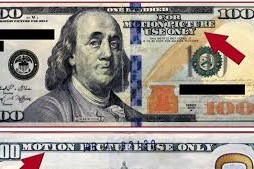Pattaya Tourist’s Fake Money Exposes Global Currency Trust Issues.
American tourist’s failed attempt to exchange movie prop dollars in Thailand unveils vulnerabilities in global currency trust dynamics.

The story out of Pattaya, Thailand—reported by the Bangkok Post—is, on its face, a minor crime: An American tourist, Jeffrey Stookey, 66, was caught trying to exchange counterfeit US dollars at a local currency exchange. The bills were marked “For Motion Picture Use Only.” He allegedly became angry when the exchange refused to accept them. He’s been a frequent visitor to Thailand for a decade and has a Thai wife in the Northeast.
It’s the kind of anecdote that might briefly titillate and then fade from memory. But it raises deeper, more unsettling questions about the nature of value, trust, and the increasingly porous boundaries between the real and the simulated in our globalized economy.
We’re accustomed to thinking of counterfeiting as a threat to the tangibility of currency—that the value represented by a bill is somehow invalidated by a physical forgery. But Stookey wasn’t attempting to produce a perfect replica. He was offering bills explicitly labeled as props. This isn’t about technical expertise in reproducing the nuances of security features. This is about exploiting a system of trust—or, perhaps more accurately, exposing its fragility.
Consider the elements at play here:
- The ubiquity of American currency: The US dollar remains a reserve currency, circulating globally, and carrying immense symbolic weight. Its presence is so pervasive that even a poorly disguised imitation might, in certain circumstances, pass inspection.
- The context of tourism: Tourist economies operate on a different set of rules and assumptions. Transactions are often fast-paced, trust is delegated to institutional actors like currency exchanges, and the potential for exploitation, on both sides, is heightened.
- The pretense of legitimacy: The fact that Stookey allegedly became angry when the exchange refused the bills suggests an attempted performance of entitlement, a calculated attempt to bully his way through.
This incident is, in a sense, a microcosm of the larger anxieties surrounding value in the digital age. We live in a world where NFTs sell for millions, meme stocks surge and collapse based on online sentiment, and cryptocurrencies create and destroy fortunes seemingly overnight. These phenomena expose the degree to which value is a shared fiction, a collective belief system that can be manipulated, undermined, or simply evaporate.
“The attempt to pass ‘movie money’ isn’t just a petty crime; it’s a performance that reveals the performative nature of value itself. It’s a stark reminder that currency, ultimately, relies on a shared belief in its worth, a belief that can be shaken by a simple label: ‘For Motion Picture Use Only’.”
Moreover, the story hints at the potential for asymmetric vulnerabilities. Stookey, a frequent traveler with local connections, likely possessed a certain level of cultural understanding, which he then potentially exploited for personal gain. The local exchange worker, on the other hand, may have been placed in a vulnerable position, facing a potential loss for their employer and the pressure of a demanding customer.
The tale of Jeffrey Stookey and his movie money is more than just a quirky crime story from Thailand. It’s a reminder that the theater of value is always playing, and that the line between reality and illusion is often thinner than we think.









